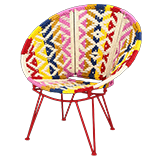Seller Story
Activist, director and writer Sonia Nassery Cole has been fighting for human rights since she was 17. Born in Afghanistan, she spent much of her childhood traveling the world as the daughter of a diplomat. In 1979, she escaped the Soviet invasion and came to America, embarking on a career at the UN. Over the years, she has tirelessly advanced relief and awareness efforts for her war-torn country, often in direct partnerships with sitting U.S. presidents. In 2002, she formed the Afghanistan World Foundation, a nonprofit organization dedicated to raising awareness and funds to aid the women and children of Afghanistan, including economic development, health services, hospitals and educational opportunities.
Eleven years later, after producing a documentary called The Breadwinner, about a 9-year old Afghan newsboy, Sonia felt compelled to bring a feature film project to Afghanistan. “Because it’s such a dangerous place, there hadn’t been a movie in production since the 1970’s.” She wrote, produced, and directed the feature Black Tulip, based on true events of a family up against cultural upheaval in war-ravaged Kabul. What followed was Sonia’s first book, Will I Live Tomorrow? The Making of Black Tulip, which describes the extortion, kidnapping attempts and death threats she and her crew faced while filming.
Now, with pieces from her collection for auction in two sales on EBTH.com, Sonia reflects on what they have meant to her, whether it’s an Ostrich egg that matched her grandfather’s in Kabul, Banjara wall hangings she bought after a spiritual awakening in India, or a Michael Hafftka painting of a bicycle that reminds her to keep going. “I didn’t buy anything that didn’t mean something to my life,” she says.
A percentage of proceeds will benefit the Afghanistan World Foundation.


William Quigley Original Oil and Acrylic on Canvas

House of Erte Athena Collector's Plate by Franklin Mint

Three Crewel Needlework Decorator Pillows

Pair of French Provençal Style Armchairs

Indian Sari and Skirt

Pair of Hand Woven Afghan Prayer Rugs

Two Women's Zarif Afghani Jackets

Two Small African Beaded Pouches


Chinese Tang Style Sancai Floor Vase

Wellington Hall Queen Anne Style Armchair

Pair of Vintage Samuel L. Dinkelspiel Lamps

Missoni Contemporary Wool Area Rug

Purple Velvet Cape

Banjara Wall Hanging

Two Afgani Hand Embroidered Tunics

Indian Banjara Wall Hanging or Kutch Throw

Michael Hafftka "Man on Wheel" Oil Painting

Pair of Smoked Glass Vases with Lids

Afghan Girl National Geographic Poster

African Trinkets

Pom Pom Dress

Four Small Middle Eastern Textiles

Two Embroidered Dresses

Boumi Embroidered Handbag from Afghanistan

Michael Hafftka "Man Sitting" Oil Painting

Ostrich Egg on Horn Stand

Napoleon III Boulle-Work Card Table

Seven Harvard Classics Volumes

Tell us about the Afghan clothing:
The dresses and tunics are very old and were given to me by a man I was working with in Afghanistan in 2001. “You’ve done so much for our country,” he said, “These belonged to my grandmother and I want you to have them as a gift.” They had been locked in a suitcase for years.
What do you want the next people who own them to know?
For me they’re about celebrating women. The fact that the women who made the dresses hundreds of years ago were free, and now Afghanistan has gone backwards. The color reminds me of the beauty of my country. Women don’t wear burqas in the villages, so you see them in pink, purple, green and yellow, with 50 bracelets on each arm — vacuuming the house in all of that color. We have to preserve their rights and fight for them, which is what I do with my foundation.
What’s your favorite piece in the sale?
The Quigley painting, because of the message you can see if you look closely. I got it when I had just come back from Afghanistan and I wanted something bright, with words that made me feel good. It’s great to have a reminder like that to wake up to every morning.







